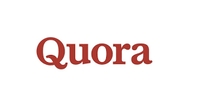|
Quora Question: How can a normal person deal with having conflicting beliefs? What philosophers or philosophy should one read? Holding beliefs that conflict with one another is more common than you might think. Often, these conflicts go unnoticed because most people do not examine their beliefs deeply or carry them through to their logical conclusion.
One of the problems with doing this is that it increases the likelihood of something called cognitive dissonance where a person has to directly confront the fact that their beliefs are in conflict. The most common response to this cognitive dissonance is denial. People simply deny that their beliefs are in conflict. Let me give you three tips that can help deal with this conflict and then suggest some good philosophical books.
Your beliefs are tools that can advance your values. But, if your beliefs are not advancing your values, they can and should be changed. Changing them becomes easier if you can recognize that they are not the same as your values. Here are some good books that can provide you with more insights: Julia Galef The Scout Mindset: Why Some People See Things Clearly and Others Don't Adam Grant Think Again: The Power of Knowing What You Don’t Know Jamie Holmes Nonsense: The Power of Not Knowing Image by DanaTentis from Pixabay  A2A on Quora: To a certain extent but within limits. While most people believe that they actively choose their own beliefs in reality it is more complicated than that. Most people’s beliefs most of the time are unexamined and inherited. People tend to believe in the same religion as their parents or their community. The same goes for political beliefs. The human brain is wired up to believe but not necessarily to think critically about those beliefs. So, the process of arriving at beliefs is not always based on an objective investigation of the relevant evidence and the result is not a carefully chosen belief based on that examination. Instead, psychologists now recognize that we often begin with an emotional response to a situation or a claim and then reason backward from that response to explain it. In between these two mental acts is where the belief arises. And, unless specifically asked to do so, backward reasoning doesn’t always happen. So, we end up with a belief that arises in response to an emotional response. And, these are not entirely in our control. This explains in part why it is so difficult for people to change their beliefs or even to examine them rigorously. It also illustrates the fact that our thinking is often clouded by several biases. One of these is called confirmation bias. This is the tendency we all share to only look at evidence that validates our own beliefs and ignore evidence to the contrary. The process of critical thinking can correct some of these biases and can allow us to learn to examine our beliefs in light of reason and evidence and actively choose the ones best supported by that evidence. But, the process is difficult and must be learned. It takes practice and vigilance as you are going against the grain of how your mind is wired up to think. |
KEVIN J. BROWNEPhilosopher / Educator These blog posts contain links to products on Amazon.com. As an Amazon Associate I earn from qualifying purchases.
Categories
All
Archives
April 2023
|




 RSS Feed
RSS Feed
















